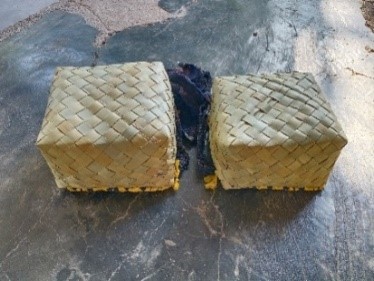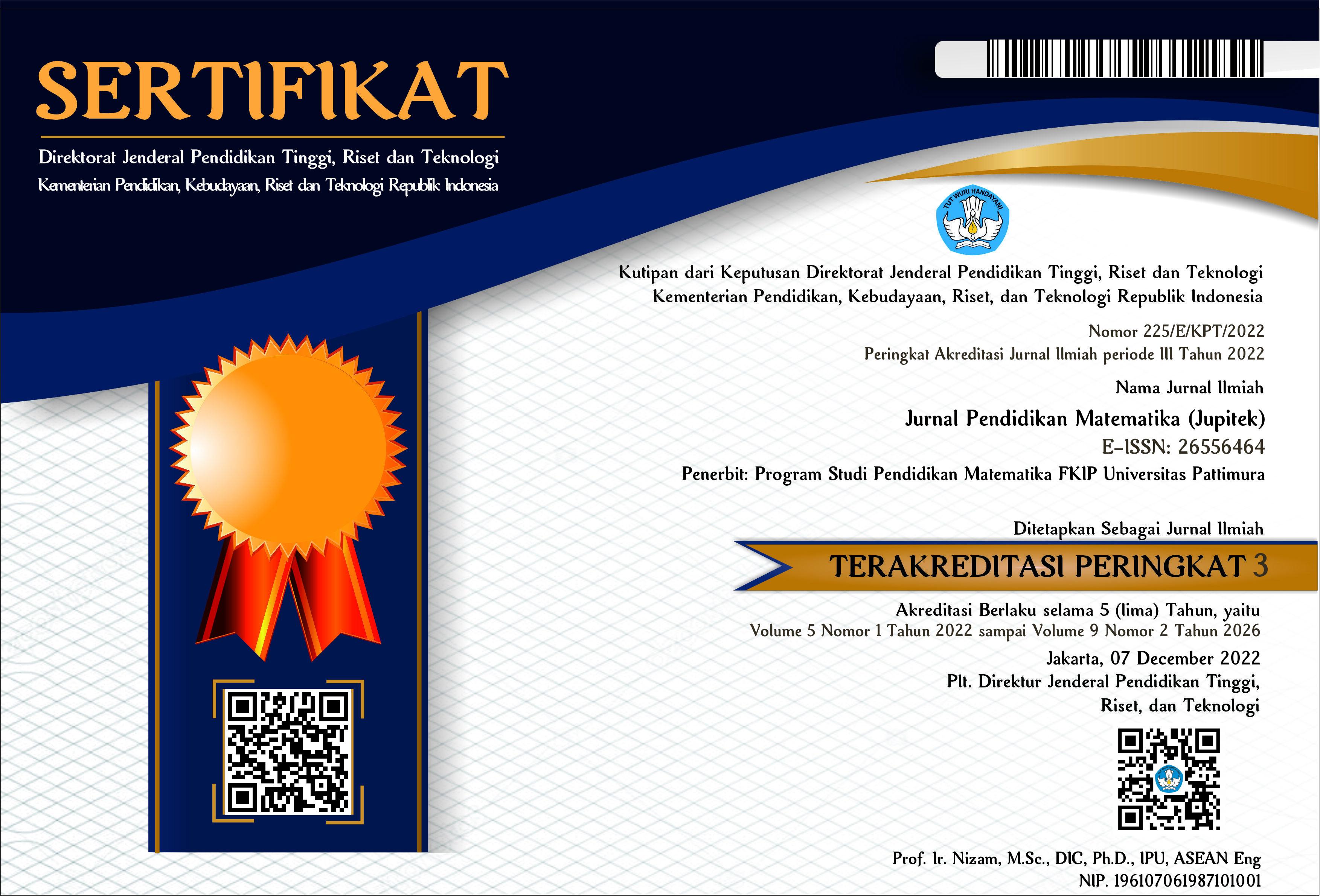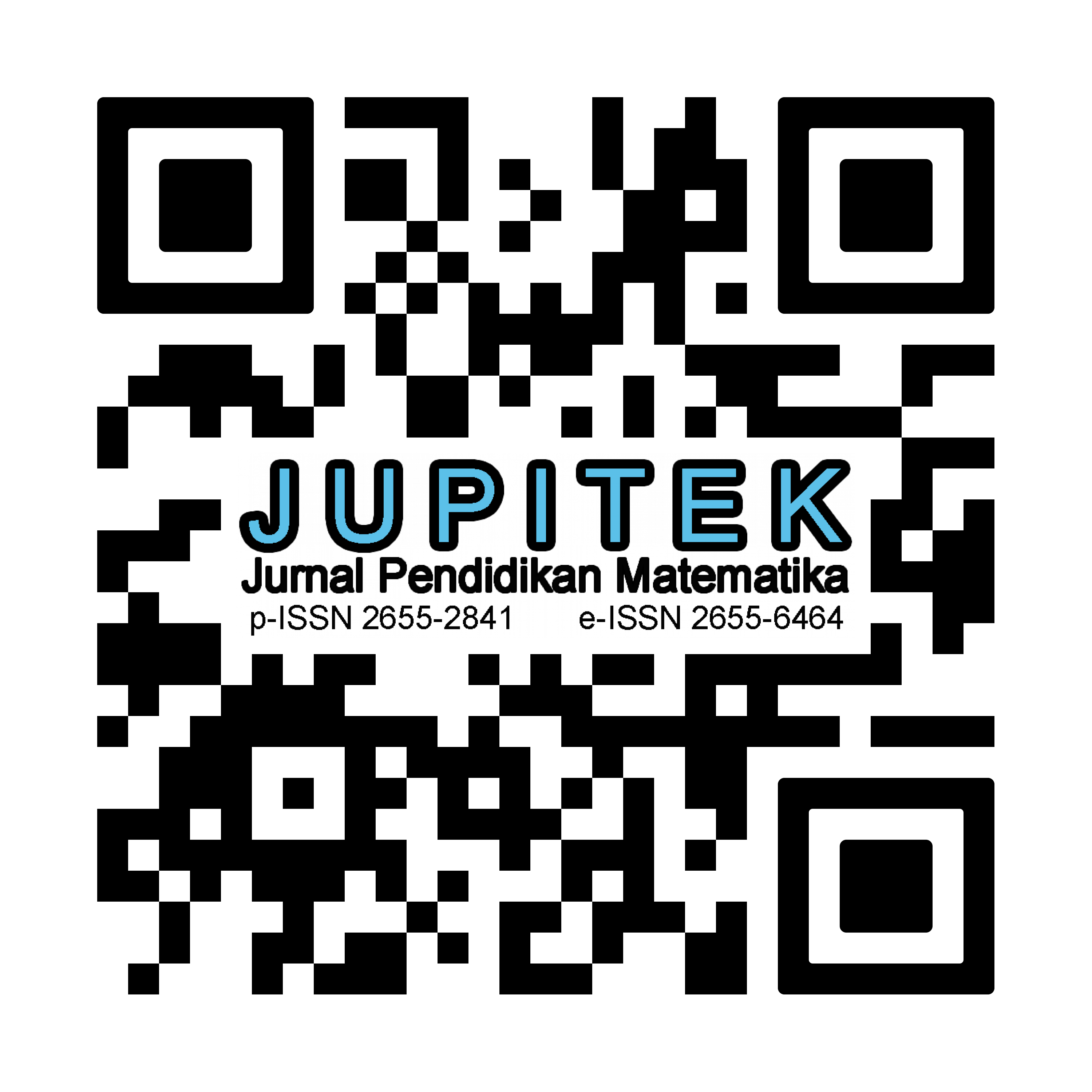ETHNOMATHEMATICS EXPLORATION IN THE PED’OA TRADITIONAL DANCE OF THE SABU COMMUNITY IN THE RAIJUA DISTRICT
Abstract
Ped'oa is a traditional dance performed in mass by the Sabu community in a circle and led by the dance leader or mone pedjoe. This research aims to explore ethnomathematics in the Ped’oa traditional dance of the Sabu Community in the Raijua District. In addition, through ethnomathematics exploration, we can identify various mathematical concepts that exist in the Ped'oa traditional dance of the Sabu community in the Sabu Raijua Regency. This research is qualitative-explorative research with an ethnographic design. The subject of this study consisted of five people who were dancers and leaders of the cultural society. The data in this research is obtained through interviews, observations, and documentation. The data validity test is carried out by triangulation of sources. The data obtained were analyzed using Spradley's model data analysis techniques carried out through domain, taxonomy, componential, and cultural themes analysis. The results of this study showed that there is ethnomathematics in the Ped’oa traditional dance which is indicated by the characteristic of counting, locating, designing, and explaining activities. Based on those activities, mathematical concepts can be identified in the Ped’oa traditional dance, including multiplication, geometry, number patterns, geometric transformations, and mathematical logic. Those various mathematical concepts can be developed by designing mathematics learning tools that can be applied in mathematics learning, both for primary and secondary education levels
Downloads
References
Abi, A. M. (2016). Integrasi Etnomatematika Dalam Kurikulum Matematika Sekolah. Jurnal Pendidikan Matematika Indonesia, 1(1), 1–6.
Astuti, E. P., Hanum, F., Wijaya, A., & Purwoko, R. Y. (2023). Etnomatematika: Eksplorasi Konsep Matematika Dan Nilai Karakter Pada Permainan Tradisional Jawa Ganjilan. AXIOM: Jurnal Pendidikan Dan Matematika, 11(2), 165. https://doi.org/10.30821/axiom.v11i2.12503
Bishop, A. J. (1998). Mathematical Enculturation: A Cultural Perspective of Mathematics. Kluwer Academic Publisher.
Cesaria, A., Fitri, D. Y., & Rahmat, W. (2022). Ethnomathematic Exploration Based On Realistic Mathematics Education (Rme) In The Traditional Game “Lore.” AKSIOMA: Jurnal Program Studi Pendidikan Matematika, 11(2). https://doi.org/10.24127/ajpm.v11i2.4958
Ceunfin, F., & Dewi, M. K. A. C. S. (2020). Analysis of the Musical Form of Kedu’e as an Accompaniment of East Sabu Ethnic Padoa Dance at Ie Lowe Wini Studio, Air Nona Village, Kota Raja District, Kupang. Ekspresi Seni: Jurnal Ilmu Pengetahuan Dan Karya Seni, 22(1), 100–109.
Creswell, J. W. (2014). Research Design: Qualitative, Quantitative, and Mixed Methods Approaches. SAGE Publications, Inc.
D’Ambrosio, U. (1985). Ethnomathematics and Its Place in the History and Pedagogy of Mathematics. For the Learning of Mathematics, 5(1), 44–48.
Dominikus, W. S. (2021). Hubungan Etnomatematika Adonara dan Matematika Sekola: Etnografi Matematika di Adonara. Media Nusa Creative (MNC Publishing).
Fatkhurohman, F., Ayuningtyas, A. D., Noto, M. S., & Widodo, S. A. (2021). Etnomathematics: Exploration of Geblek Renteng Batik in Transformation Geometry. Numerical: Jurnal Matematika Dan Pendidikan Matematika, 79–90. https://doi.org/10.25217/numerical.v5i2.1506
Fauzi, L. M., Hayati, N., Gazali, M., & Fauzi, A. (2022). Ethnomathematics: Exploration of Mathematics and Cultural Values in the Performing Arts of the Sasak Tribe Perisean. Hypotenuse: Journal of Mathematical Society, 4. https://doi.org/10.18326/hypotenusa.v4i1.7240
Fredy, F., Tembang, Y., Bito, G. S., & Sholikhah, O. H. (2020). Exploration Ethnomathematics of the Malind Tribe for Character Building in Elementary Schools. International Journal on Advanced Science, Education, and Religion, 3(2), 9–20. https://doi.org/10.33648/ijoaser.v3i2.58
Gerdes, P. (2001). Ethnomathematics as a New Research Field, Illustrated by Studies of Mathematical Ideas in African History. Science and Cultural Diversity: Filing a Gap in the History of Sciences. Cuadernos de Quipu, 5, 10–34.
Hariastuti, R. M. (2017). Permainan tebak-tebak buah manggis: Sebuah inovasi pembelajaran matematika berbasis etnomatematika. JMPM: Jurnal Matematika dan Pendidikan Matematika, 2(1), 25-35.
Irawan, A., & Kencanawaty, G. (2017). Implementasi Pembelajaran Matematika Realistik Berbasis Etnomatematika. Journal of Medives Journal of Mathematics Education IKIP, 1(2), 74–81. http://e-journal.ikip-veteran.ac.id/index.php/matematika
Kementrian Pendidikan dan Kebudayaan. (2017). UU No 5 Tahun 2017 Tentang Pemajuan Kebudayaan. Kementrian Pendidikan dan Kebudayaan.
Moleong, L. J. (2007). Metodologi Penelitian Kualitatif. Remaja Rosdakarya.
Muhammad, I., Marchy, F., & Do Muhamad Naser, A. (2023). Analisis Bibliometrik: Tren Penelitian Etnomatematika dalam Pembelajaran Matematika di Indonesia (2017-2022). Jurnal Ilmiah Pendidikan Matematika), 11(2), 267–279. https://doi.org/10.25273/jipm.v11i2.14085
Pathuddin, H., Kamariah, & Ichsan Nawawi, M. (2021). Buginese ethnomathematics: Barongko cake explorations as mathematics learning resources. Journal on Mathematics Education, 12(2), 295–312. https://doi.org/10.22342/jme.12.2.12695.295-312
Prahmana, R. C. I., & D’Ambrosio, U. (2020). Learning geometry and values from patterns: Ethnomathematics on the batik patterns of yogyakarta, indonesia. Journal on Mathematics Education, 11(3), 439–456. https://doi.org/10.22342/jme.11.3.12949.439-456
Pramudita, K., & Rosnawati, R. (2019). Exploration of Javanese culture ethnomathematics based on geometry perspective. Journal of Physics: Conference Series, 1200(1). https://doi.org/10.1088/1742-6596/1200/1/012002
Radiusman, R., Wardani, K. S. K., Apsari, R. A., Nurmawanti, I., & Gunawan, G. (2021). Ethnomathematics in Balinese Traditional Dance: A Study of Angles in Hand Gestures. Journal of Physics: Conference Series, 1779(1). https://doi.org/10.1088/1742-6596/1779/1/012074
Rudyanto, H. E., HS, A. K. S., & Pratiwi, D. (2019). Etnomatematika Budaya Jawa: Inovasi Pembelajaran Matematika Di Sekolah Dasar. Jurnal Bidang Pendidikan Dasar, 3(2), 25-32.
Salsabilah, A. P., Rahmah, A. A., Wulandari, A., & Soebagyo, J. (2022). A Review of Research: Exploring Ethnomatematics on Indonesian Traditional Games in Mathematics Learning. Journal of Medives: Journal of Mathematics Education IKIP Veteran Semarang, 6(1), 191. https://doi.org/10.31331/medivesveteran.v6i1.1751
Santoso, E., Sukestiyarno, Y. L., Mariani, S., & Isnarto, I. (n.d.). Prosiding Seminar Nasional Pascasarjana ISSN 26866404 Persepsi Guru Tentang Etnomatematika (Perspektif Budaya dalam Matematika). http://pps.unnes.ac.id/prodi/prosiding-pascasarjana-unnes/354
Sooai, I. P., & Qisty, S. N. (2021). SISTEM RELIGI DAN KEPERCAYAAN JINGITIU DI KABUPATEN SABU RAIJUA. In Tornare-Journal of Sustainable Tourism Research.
Supriadi, S., Arisetyawan, A., & Tiurlina, T. (2016). Mengintegrasikan pembelajaran matematika berbasis budaya Banten pada pendirian SD Laboratorium UPI Kampus Serang. Mimbar Sekolah Dasar, 3(1), 1-18.
Wijayanto, Z. (2017). Pengembangan Perangkat Pembelajaran Matematika Berbasis Etnomatematika Pada Keraton Yogyakarta. In Jurnal LP3M (Vol. 3, Issue 1).
Wulandari, S. (2020). Media Pembelajaran Interaktif Untuk Meningkatkan Minat Siswa Belajar Matematika Di SMP 1 Bukit Sundi. Indonesian Journal of Technology, Informatics, and Science (IJTIS), 1(2), 43–48. https://doi.org/10.24176/ijtis.v1i2.4891
Zaenuri, N. D., Teguh, A. W. P. B., & Dwidayati, N. (2017). Ethnomathematics Exploration on Culture of Kudus City and Its Relation to Junior High School Geometry Concept. International Journal of Education and Research, 5(9), 161–168.
Zaenuri, Z., & Dwidayanti, N. (2018). Menggali Etnomatematika: Matematika sebagai Produk Budaya. PRISMA, Prosiding Seminar Nasional Matematika, 1, 471–476.

Copyright (c) 2023 Paul Erikson Wada Wiri, Wara Sabon Dominikus, Patrisius Afrisno Udil

This work is licensed under a Creative Commons Attribution-NonCommercial-ShareAlike 4.0 International License.
License and Copyright Agreement
By submitting a manuscript to Jurnal Pendidikan Matematika (JUPITEK), the author(s) certify and agree to the following terms:
- Originality and Authority: The submitting author is authorized by all co-authors to enter into this agreement. The manuscript describes original work that has not been published previously in a peer-reviewed journal, nor is it under consideration for publication elsewhere.
- Approval: Its publication has been approved by all author(s) and by the responsible authorities of the institutions where the work was carried out.
- Rights: The authors secure the right to reproduce any material that has already been published or copyrighted elsewhere.
- Licensing and Copyright: Authors retain the copyright to their work.
- License Grant: The authors grant Jurnal Pendidikan Matematika (JUPITEK) the right of first publication, with the work simultaneously licensed under the Creative Commons Attribution-NonCommercial-ShareAlike 4.0 International (CC BY-NC-SA 4.0).
- Self-Archiving: Authors are permitted and encouraged to deposit the published version of their article in institutional repositories, on their personal websites, and other academic platforms, with proper acknowledgment of its initial publication in Jurnal Pendidikan Matematika (JUPITEK).





.png)


